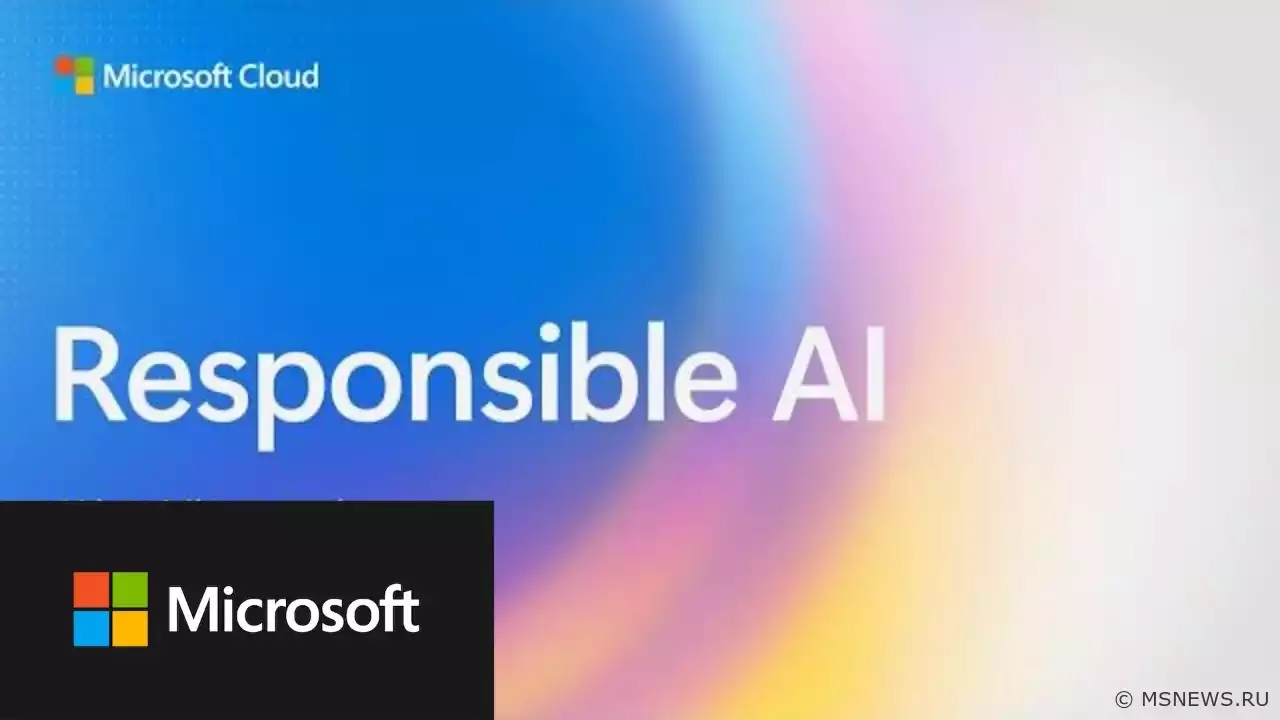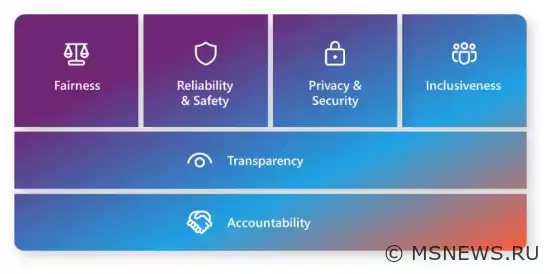Microsoft is committed to “responsible AI” when developing new features

Microsoft/Machine intelligence
Content:
Microsoft has published a blog post reaffirming its commitment to "Responsible AI" principles when developing new intelligent features for Windows. These principles, outlined in the Microsoft Responsible AI Standard, include fairness, reliability and safety, privacy and data protection, inclusiveness, as well as transparency and accountability.
↑ Recall Feature
The company paid special attention to the Recall feature, which as of today is available on Copilot+ PCs. Microsoft incorporated user feedback and made significant security and privacy improvements:
- Full user control. Recall is completely optional. Users can enable, disable, pause the feature, configure app and website filters, manage data retention duration, and delete saved screenshots through system settings.
- Transparency. During initial Windows setup, the system explains how Recall works and requests explicit consent for screenshot capture. A system tray icon indicates when screenshots are being saved. When first launching Recall, the system reconfirms your preferred settings.
- Security and privacy. Recall requires Windows Hello biometric authentication (facial or fingerprint). The feature doesn't capture DRM-protected content or private browsing sessions in supported browsers. All data (screenshots and processing results) remain encrypted on the user's device in isolated memory to prevent unauthorized access.
↑ Applications and AI Models in Windows
- Updated Paint and Photos apps allow users to transform photos into artistic styles or generate completely new images from text descriptions.
The "Restyle Image" feature maintains integrity of human subjects. A specialized AI model recognizes foreground faces to ensure they remain unchanged while applying artistic styles only to backgrounds and other elements.
No identifiable biometric data is collected, processed or stored during this process. - Developing local AI models like Phi Silica emphasized ethical and responsible use. The model integrates content moderation tools to filter generated content, ensuring it doesn't contain harmful or inappropriate material.
↑ Responsible Innovation Implementation
Microsoft not only applies Responsible AI principles to its own products but also provides developers with guidance for creating AI applications on Windows. Microsoft's approach is based on four key phases guiding planning and decision-making throughout the product lifecycle:
- Govern. Covers the entire AI feature/product lifecycle. Includes pre-release analysis to coordinate AI risk mapping, measurement and management activities.
- Mapping risk. The crucial first step toward responsible AI. Involves thorough analysis and assessment of potential AI-related risks alongside privacy and security compliance checks.
- Measure. Steps to reduce potential harm. Includes comprehensive adversarial testing to identify and mitigate risks using benchmarks and simulated "attacks" by specialist teams.
- Manage risk. Post-release, ensuring system resilience while continuously improving and evolving AI capabilities remains critical.
Анонс Windows 11 Insider Preview
Microsoft выпустила новую предварительную сборку Windows 11 под номером 22557 для участников программы Windows Insider,Анонс Windows 11 Insider Preview
Microsoft выпустила новые предварительные сборки Windows 11 (версия 22H2) под номерами 22621.2050 и 22631.2050Xbox Game Pass Standard доступен
Microsoft открыла доступ к предварительной версии подписки Xbox Game Pass Standard для участников программы XboxАнонс Windows 11 Insider Preview
Microsoft выпустила новую предварительную сборку Windows 11 под номером 26080 для участников программы Windows Insider,No comments.
Information
Users of Guests are not allowed to comment this publication.

Microsoft Windows 11, 10, 8.1, 7, XP, Server -
10-10-2024, 09:31
PC motherboard schematics
3-05-2024, 12:29
Laptop Motherboard Schematics
3-05-2024, 12:29
Updates for Windows 10 will remain free until
25-06-2025, 10:22
Now MSNEWS.RU application is available in Google
13-03-2025, 17:34Did you find a mistake?
You can report it to the administration.
Press CTRL+Enter while highlighting text



